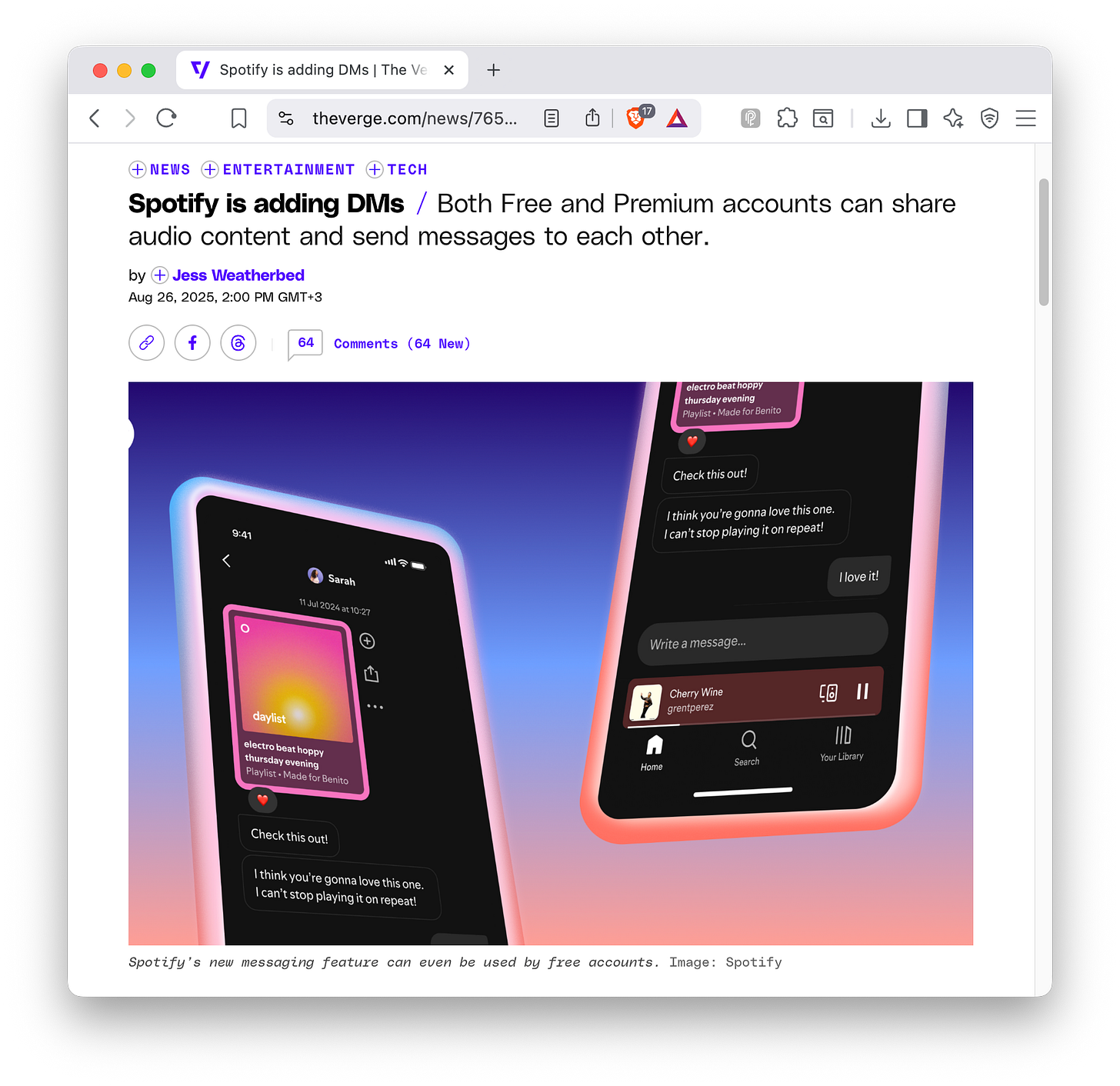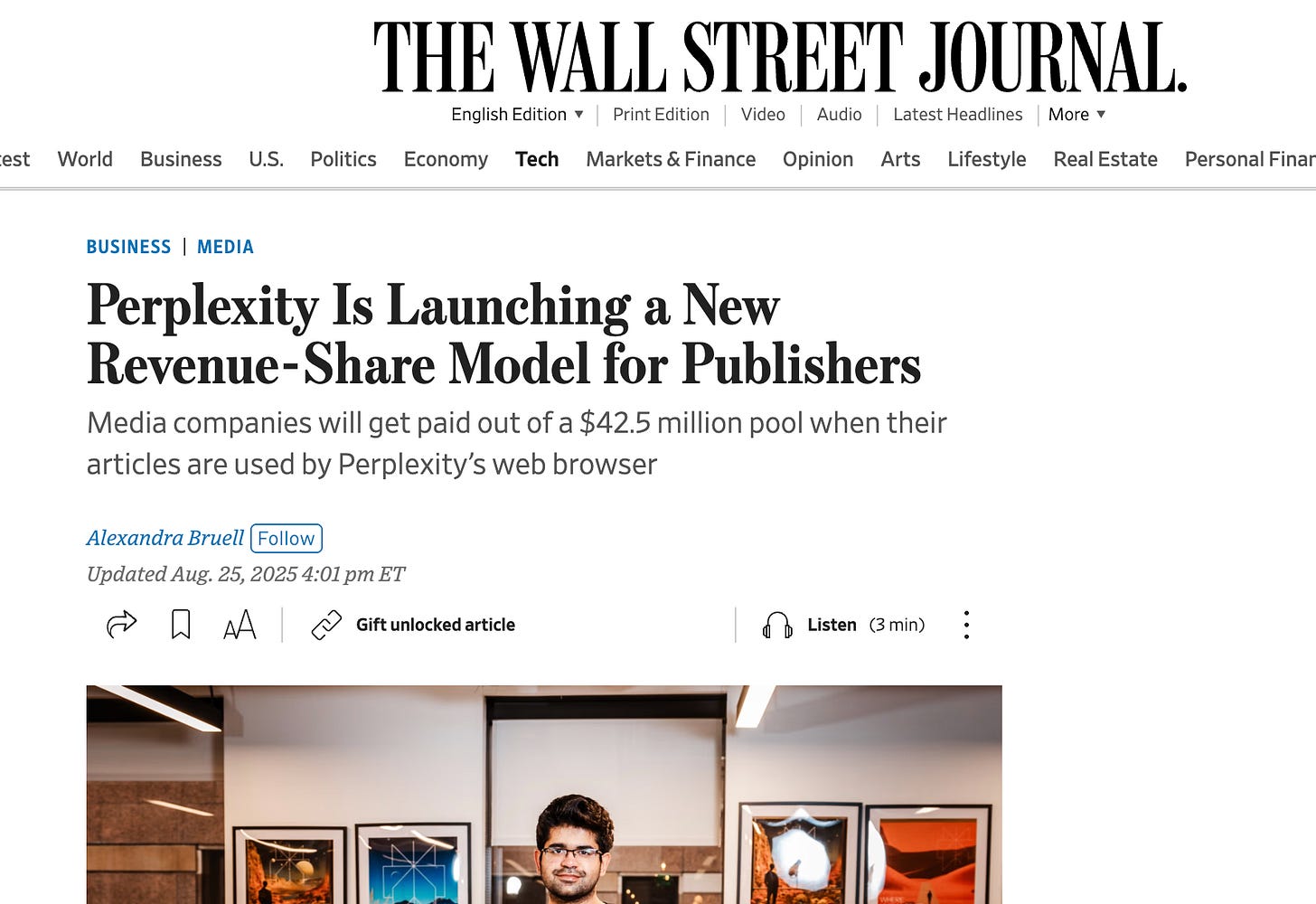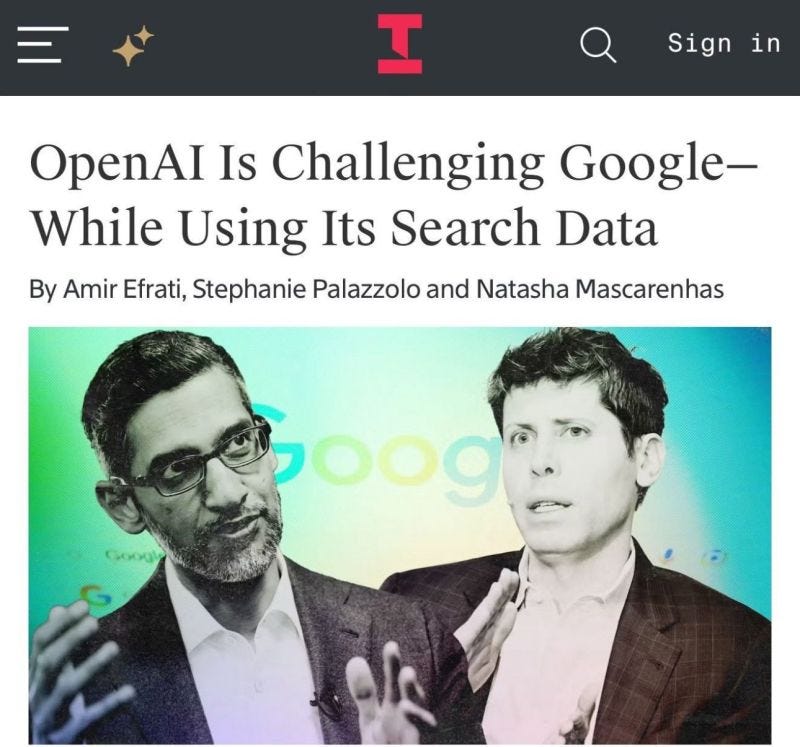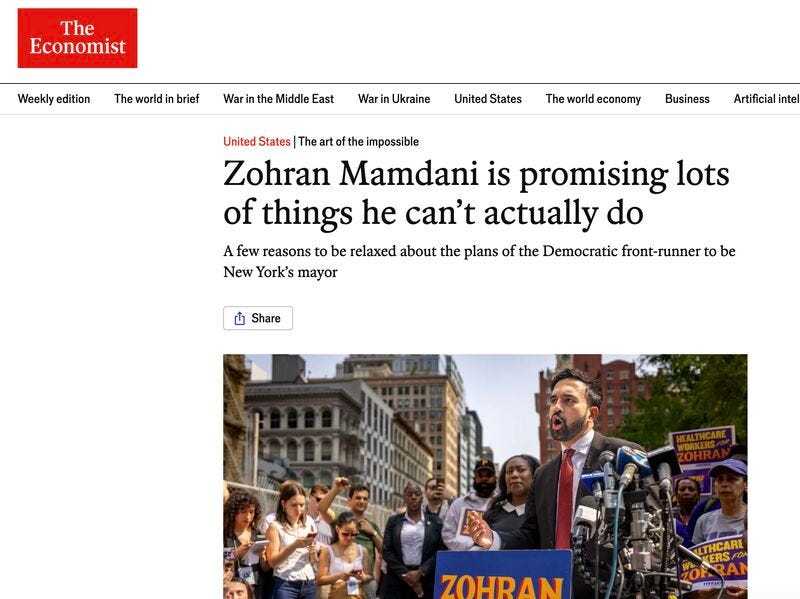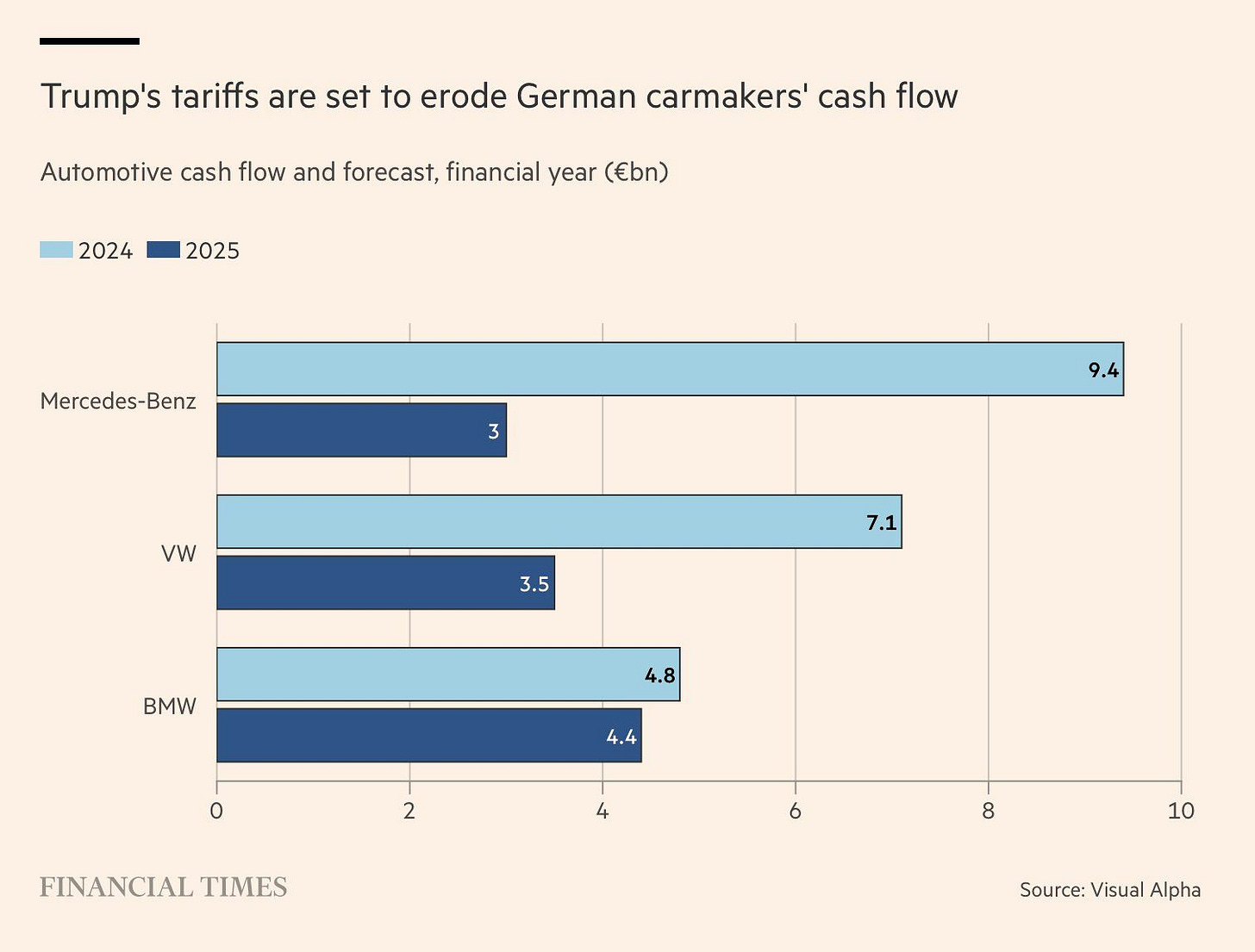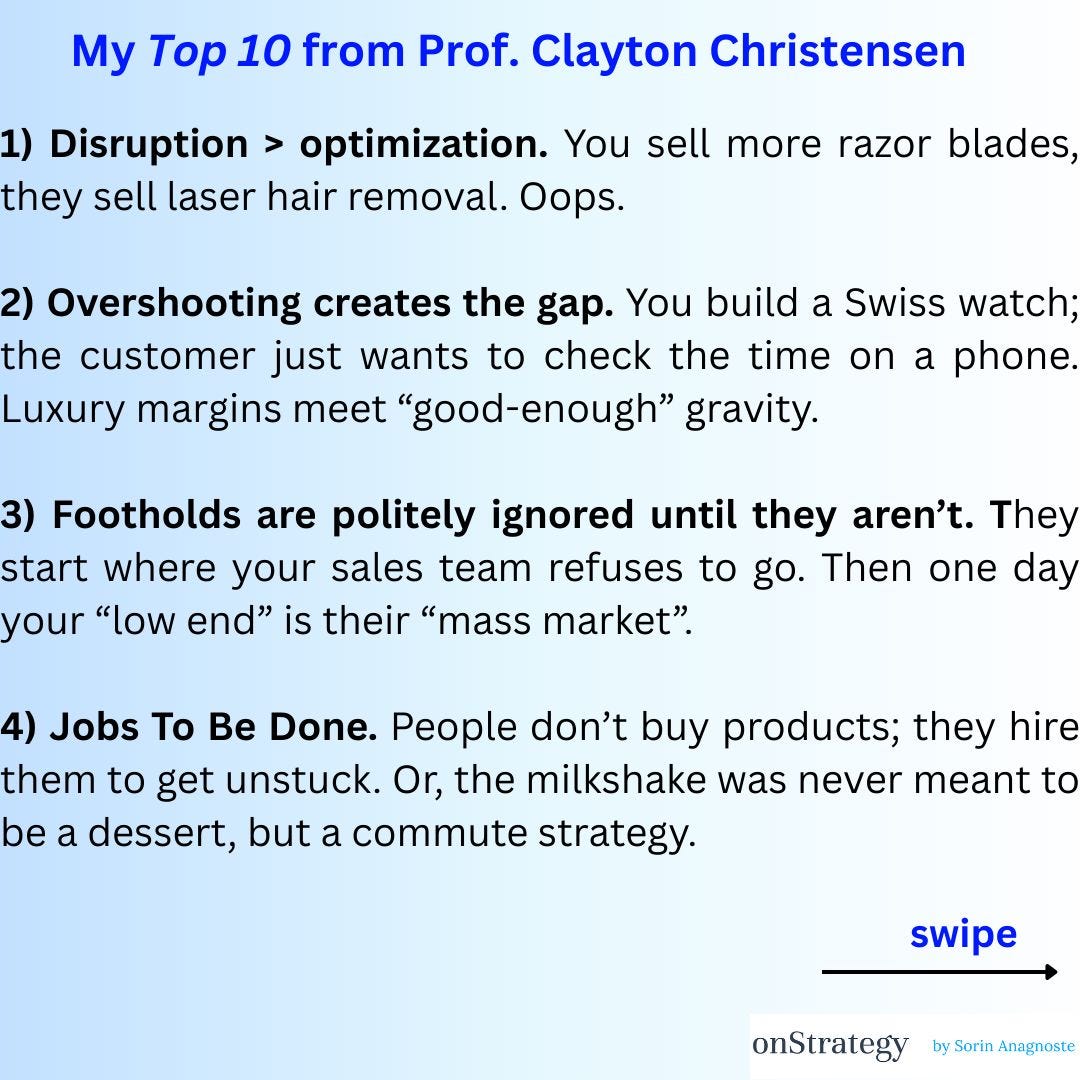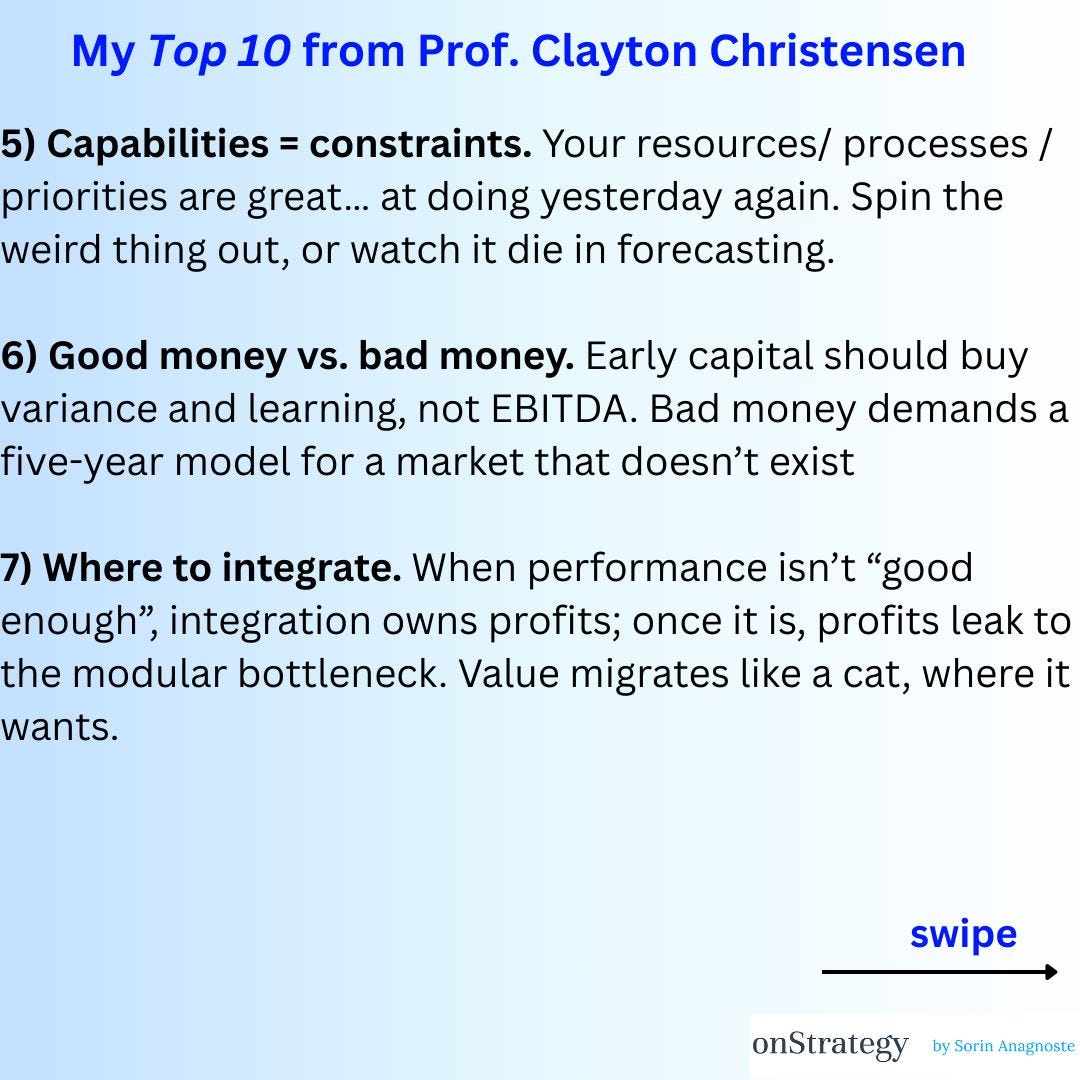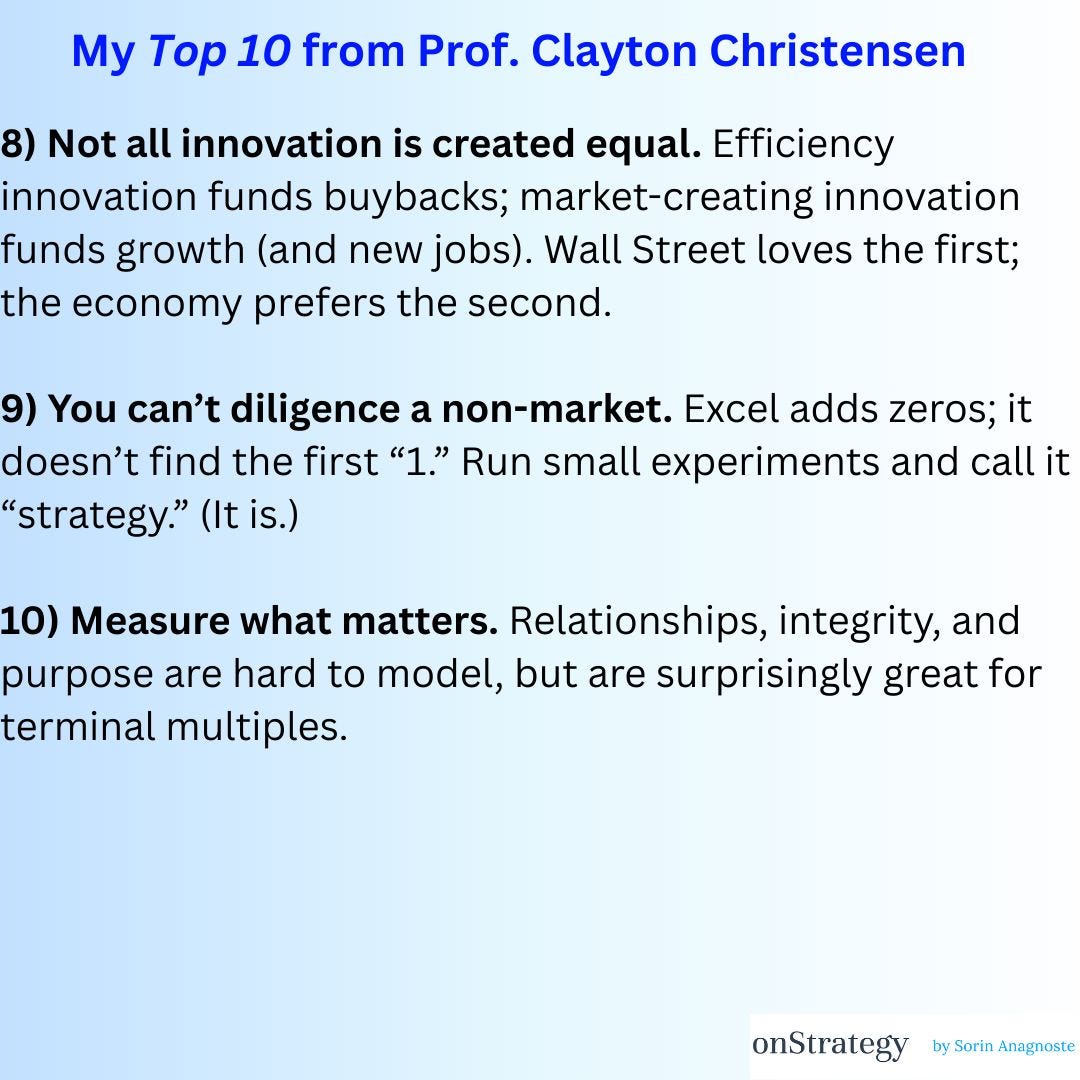(#141) My personal Top 10 from Clayton Christensen; more on Perplexity
OpenAI needs Google…for now
Thank you for being one of the +4,500 minds reading this newsletter
Here is what you’ll find in this edition:
Perplexity is building a moat
Spotify is officially a social media company
OpenAI needs Google…for now
“Free stuff” will always impoverish the poor
my personal top 10 from Clayton Christensen
Onto the update:
Spotify is officially a social media company
Spotify adding DMs is one of those "wait, isn’t this just WhatsApp but noisier?" moves. The logic is obvious: people already share songs through Whatsappp or Instagram, so why not trap that behavior inside Spotify and call it engagement? The problem is also obvious: nobody wakes up thinking, "I wish my music app also handled my social life". But in 2025, every platform wants to be a social network, because social networks print the stickiest data. So now, instead of a clean player, you’ll have unread messages from your cousin about a podcast you’ll never listen to.
The fun part is that Spotify is reinventing something we’ve all seen collapse before, ie. social layers on utility apps. Remember when every fintech app added a feed so you could "connect with friends" about your bank account? Yeah. Spotify might actually pull it off though, because music is inherently social. But if this feature works too well, it’s not Spotify the streaming service anymore; it’s Spotify the network. And that means competing not just with Apple Music, but with TikTok, Instagram, and the entire attention economy. Which is either brilliant… or a great way to turn your music player into the next ICQ or MSN Messenger. LINK
Perplexity is building a moat
Perplexity’s new “revenue-share model” basically says: yes, we scraped your articles, trained on them, and are now summarizing them to users so they never actually visit your site….but don’t worry, here’s a cut of the subscription money from the product we built on top of your work. It’s like someone taking food from your fridge, cooking dinner, and then offering you 20% of the bill they charge your neighbors. Publishers will smile and take it because it’s money and suing is expensive, but it doesn’t change the power dynamic: the AI middlemen own the distribution, and distribution is where the margins live.
The irony is delicious: tech companies started out complaining that publishers had paywalls and wanted everything free. Now, AI firms are putting publishers’ own content behind their paywalls and paying out crumbs as “partnerships”. Everyone knows $42.5 million across the industry is tip money compared to the billions at stake, but the optics are good, and regulators like a friendly headline. In the end, Perplexity isn’t fixing the business model for news, it’s just re-centralizing it. The content is still yours, but the customer relationship? That belongs to the algorithm. LINK
OpenAI needs Google…for now.
This is the tech equivalent of borrowing your roommate’s car to drive to a job interview where the job is taking his job. OpenAI is trying to build a Google killer while training on Google’s search data, which is the same data Google spent two decades collecting, curating, and monetizing into one of the most profitable businesses in history. It’s like staging a rebellion using weapons borrowed from the king’s armory.
The implications are messy. If OpenAI succeeds, it proves that Google’s real moat is the distribution and data (not technological), both of which can be leased, scraped, or litigated away. If Google cuts off the pipes, OpenAI’s growth slows. If it doesn’t, Google risks powering its own disruption. Either way, the future of search stops being about "ten blue links" and starts being about who controls the pipes of training data. And the irony is, for all the AI hype, it’s still the same fight as 1999: who owns the query, and who owns the answer. LINK
“Free stuff” will always impoverish the poor
The Economist headline is almost too polite: "promising lots of things he can’t actually do".
Translation: Zohran Mamdani is running the oldest startup in politics: the Free Stuff Company. The pitch deck is simple: abolish rent, universalize healthcare, forgive debt, make everything free. The problem is, unlike a startup, there’s no Series A; there’s just taxpayers. And unlike venture capitalists, taxpayers eventually notice when the numbers don’t add up.
We’ve seen this movie where so-called aspiring 'leaders" promise utopia, but deliver shortages. If Mamdani were a CEO, he’d be sued for securities fraud. Instead, he gets applause for promising to suspend economic gravity.
This is how cheap dopamine for the crowd looks like. The reality is there is no free stuff. Somebody pays, usually the very people the “free" was supposed to help.
btw...stop supporting this lunatic! LINK
Hard times ahead for the German carmakers
🇩🇪 Germany’s auto giants are discovering that it’s hard to be the backbone of Europe when you’re also the punching bag of trade wars. Mercedes, VW, and BMW are staring at more than €10 billion in lost cash flow this year, courtesy of Trump’s tariffs on one side and BYD & CO on the other. Hedge funds, naturally, are shorting not just the carmakers but even their suppliers, on the theory that if you can’t sell cars in the US and you can’t win on price in China, your balance sheet looks more like a liability than an asset.
The irony is that these companies used to mint money in China, exporting German engineering as a premium brand. Now they’re stuck importing Chinese EVs into their home markets at half the cost, while paying a 27.5% or (whatever agreed percentage) toll just to keep access to America.
The rules of the game shifted from "who makes the best drivetrain" to "who can survive when geopolitics eats your profit pool". Right now, Berlin’s crown jewels look less like national champions and more like very expensive hostages. LINK




